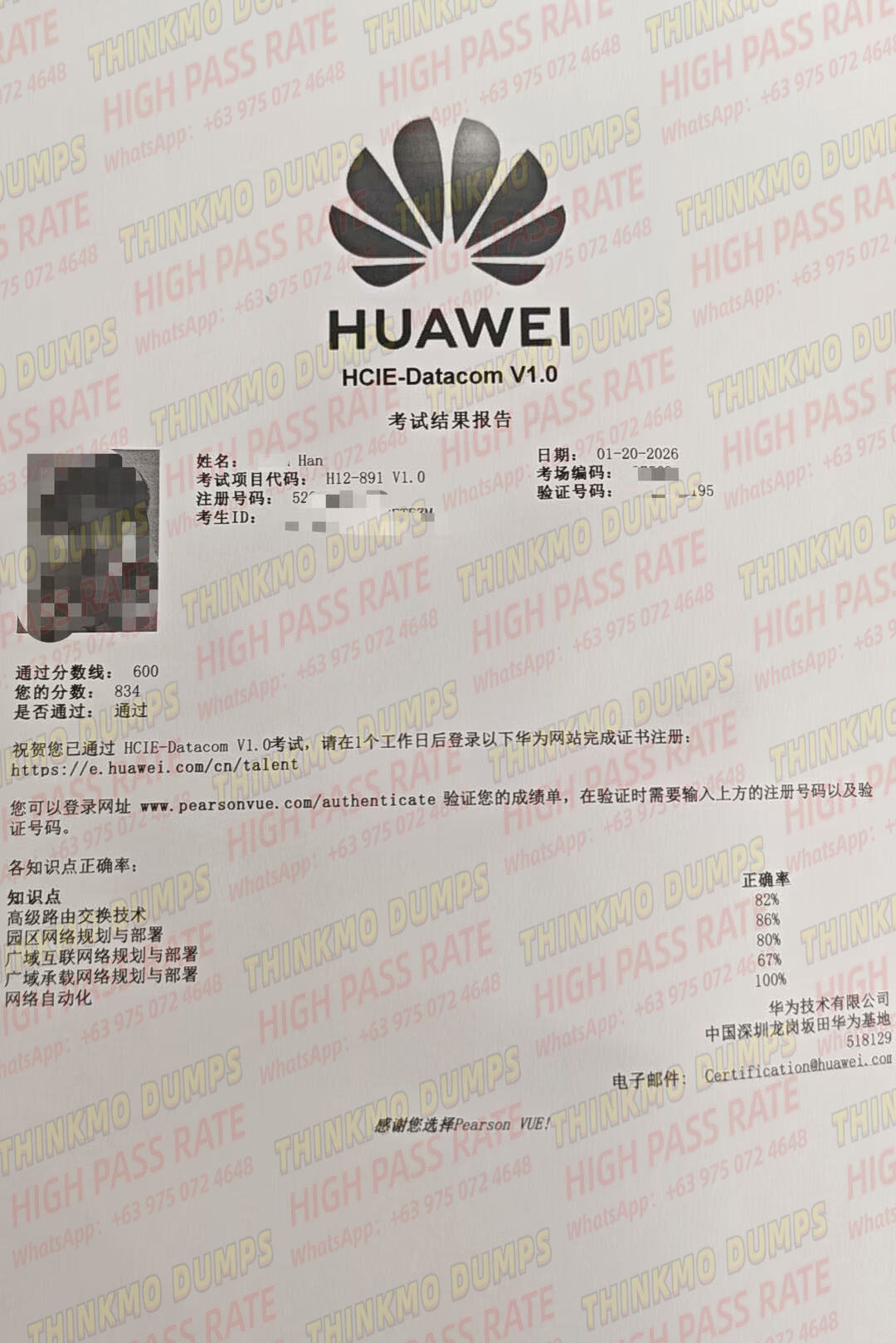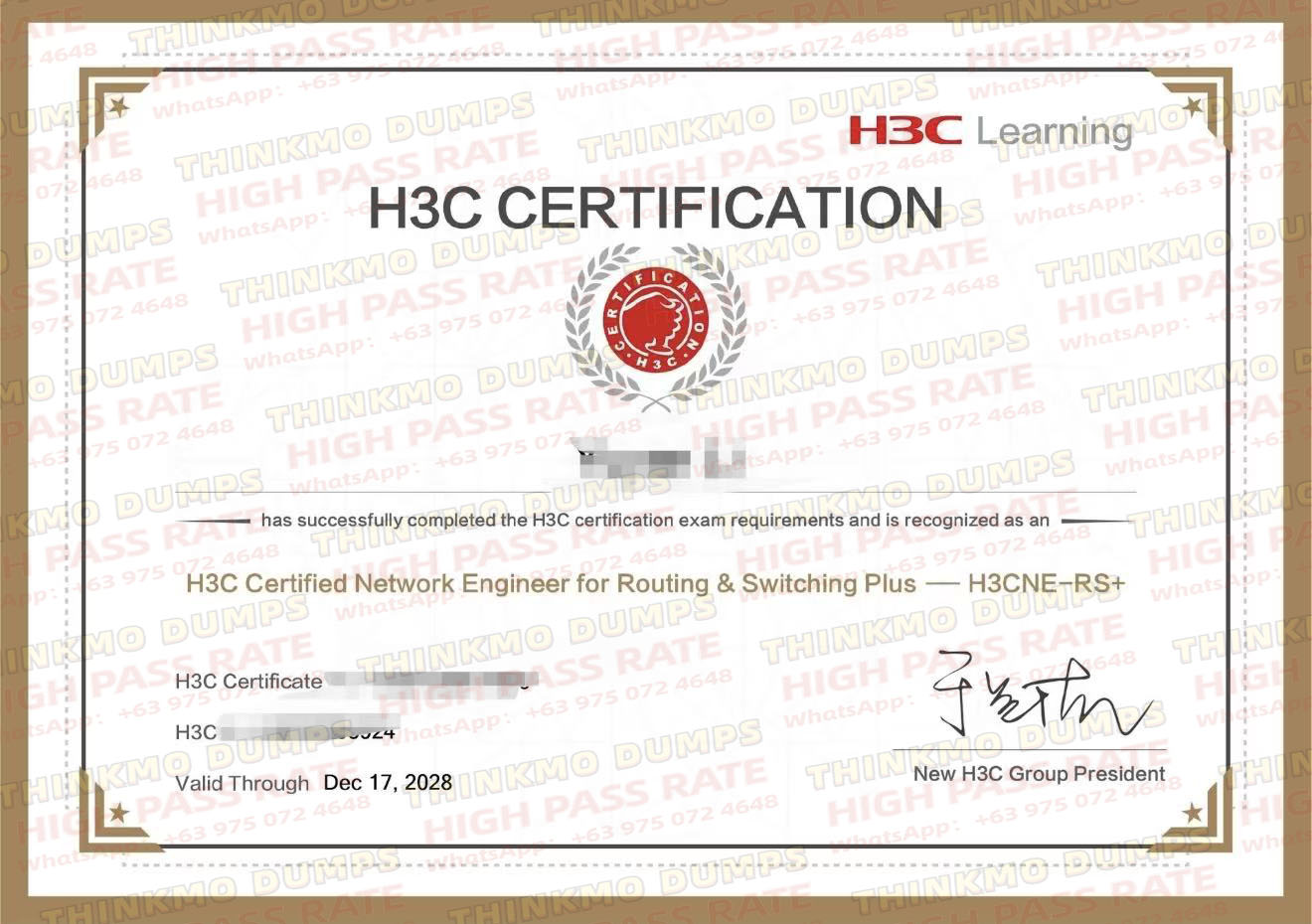What Are the Exam Topics for HCIA-Datacom?
Update time:2025-03-28
As the foundational level of Huawei's certification system, HCIA-Datacom is designed for individuals interested in the field of data communication or aspiring to work in this domain. It helps candidates build a systematic and solid knowledge base in network technology. Below, we will break down the key topics covered in the HCIA-Datacom exam.
Fundamentals of Data Communication
Being the most fundamental knowledge area in the HCIA certification, candidates are required to grasp basic concepts of data communication, such as the evolution of networks, network classifications, and the characteristics of different types of networks. Additionally, understanding the fundamental principles of data communication—including how data is encoded, transmitted, and decoded within a network—is essential. A deep understanding of IP addressing is also necessary. Candidates must be familiar with IPv4 address classifications, subnet masks, and have a basic understanding of IPv6 addressing features and usage scenarios. This foundational knowledge serves as the starting point for entering the networking world. Only with a firm grasp of these concepts can candidates proceed smoothly with more advanced studies.
IP Routing and Switching Technologies
This section forms the core of the HCIA-Datacom exam. In routing, candidates must comprehend the fundamental principles of routing, the formation and operation of routing tables, as well as the principles and configuration methods of static and dynamic routing. The dynamic routing protocol OSPF is particularly emphasized, including its working process, area division, and neighbor relationship establishment.
For switching technologies, candidates should master the principles of Ethernet switching, the working mechanism of switches, and the configuration and functions of VLANs (Virtual Local Area Networks). Additionally, understanding Spanning Tree Protocol (STP) and Rapid Spanning Tree Protocol (RSTP) is crucial, as these protocols prevent network loops and ensure network stability. This knowledge plays a key role in building and managing networks and is a core skill required for the HCIA certification.
Network Management and Maintenance
Candidates must also be familiar with basic network management concepts and methods, including network device configuration management, fault management, and performance management. A solid understanding of the principles and applications of SNMP (Simple Network Management Protocol) is necessary, as SNMP enables remote management and monitoring of network devices. In real-world network operations, the ability to quickly identify and resolve network issues is crucial, and this aspect is also assessed in the exam.
Conclusion
The HCIA-Datacom exam covers a comprehensive and systematic range of topics in data communication. By studying and preparing for these topics, candidates can acquire essential skills in the field of data communication, laying a strong foundation for obtaining higher-level Huawei certifications and deepening their expertise in network technologies. HCIA certification will also serve as a stepping stone for candidates to launch their careers in the vast world of network technology.
Fundamentals of Data Communication
Being the most fundamental knowledge area in the HCIA certification, candidates are required to grasp basic concepts of data communication, such as the evolution of networks, network classifications, and the characteristics of different types of networks. Additionally, understanding the fundamental principles of data communication—including how data is encoded, transmitted, and decoded within a network—is essential. A deep understanding of IP addressing is also necessary. Candidates must be familiar with IPv4 address classifications, subnet masks, and have a basic understanding of IPv6 addressing features and usage scenarios. This foundational knowledge serves as the starting point for entering the networking world. Only with a firm grasp of these concepts can candidates proceed smoothly with more advanced studies.
IP Routing and Switching Technologies
This section forms the core of the HCIA-Datacom exam. In routing, candidates must comprehend the fundamental principles of routing, the formation and operation of routing tables, as well as the principles and configuration methods of static and dynamic routing. The dynamic routing protocol OSPF is particularly emphasized, including its working process, area division, and neighbor relationship establishment.
For switching technologies, candidates should master the principles of Ethernet switching, the working mechanism of switches, and the configuration and functions of VLANs (Virtual Local Area Networks). Additionally, understanding Spanning Tree Protocol (STP) and Rapid Spanning Tree Protocol (RSTP) is crucial, as these protocols prevent network loops and ensure network stability. This knowledge plays a key role in building and managing networks and is a core skill required for the HCIA certification.
Network Management and Maintenance
Candidates must also be familiar with basic network management concepts and methods, including network device configuration management, fault management, and performance management. A solid understanding of the principles and applications of SNMP (Simple Network Management Protocol) is necessary, as SNMP enables remote management and monitoring of network devices. In real-world network operations, the ability to quickly identify and resolve network issues is crucial, and this aspect is also assessed in the exam.
Conclusion
The HCIA-Datacom exam covers a comprehensive and systematic range of topics in data communication. By studying and preparing for these topics, candidates can acquire essential skills in the field of data communication, laying a strong foundation for obtaining higher-level Huawei certifications and deepening their expertise in network technologies. HCIA certification will also serve as a stepping stone for candidates to launch their careers in the vast world of network technology.
Hot article
-
 1
1 1. ThinkMo Precise Question Bank: Ace HCIE Written
上传:2026-01-23
-
 2
2 Triple H3CNE/H3CSE Passes | ThinkMo Christmas Succe
上传:2025-12-25
-
 3
3 Success Streak: ThinkMo’s Dec HCIE-Datacom Win
上传:2025-12-24
-
 4
4 ThinkMo Guide: Cisco & Huawei Certification Com
上传:2025-12-22
-
 5
5 Pass CCIE/CKA Exams with ThinkMo’s Top Question B
上传:2025-12-19








